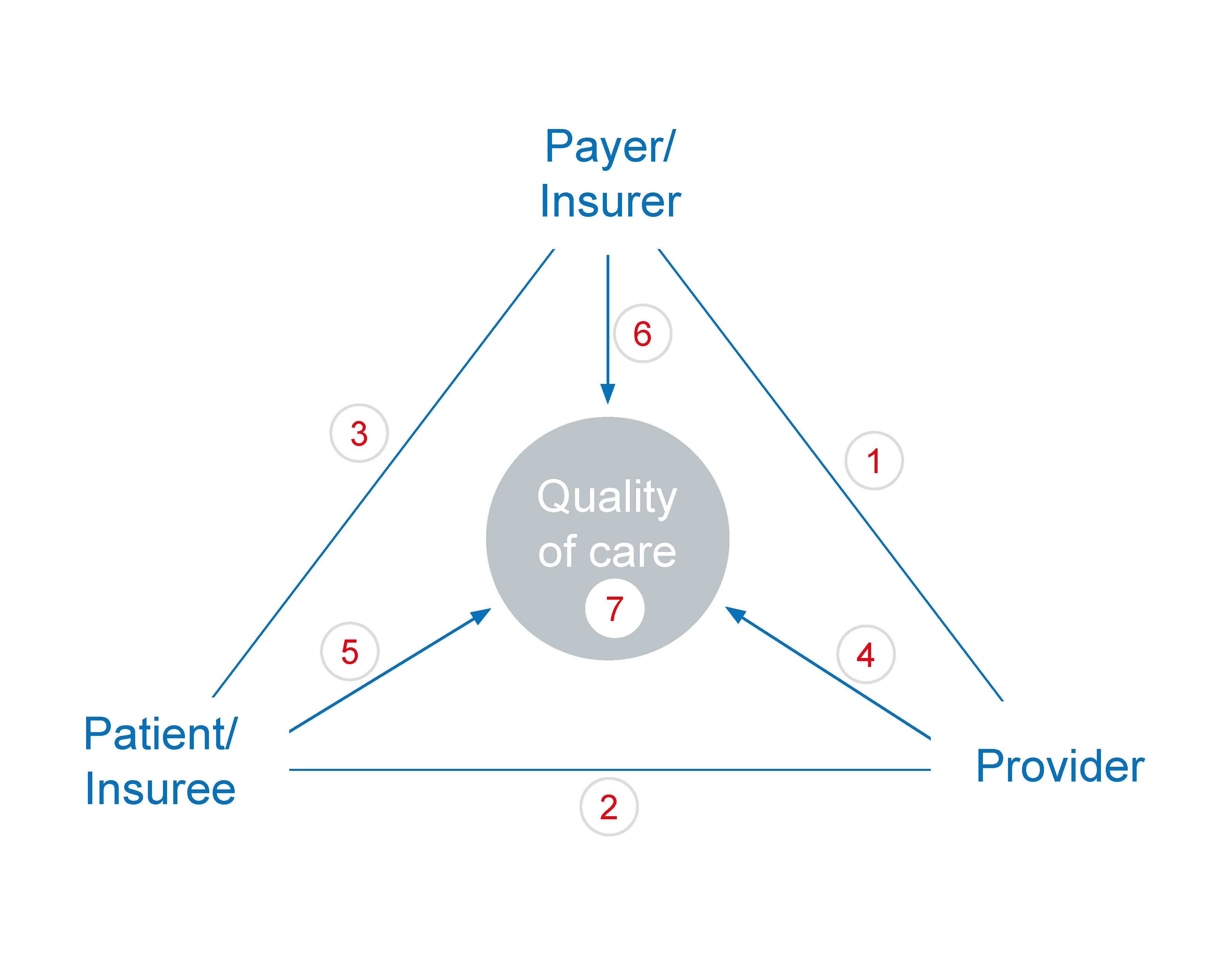Research
Quality of care is of utmost importance for society, e.g. when choosing among providers or when contracting services. This is why the research agenda of our research training group focuses on how to influence and improve quality of care. We aim to (a) analyse the relationship between processes and outcomes in a range of contexts and (b) provide a view on quality of care that is as comprehensive as possible.
To provide a comprehensive view of the quality of care and how it is influenced by the behaviour of all actors in the German health system, we have clustered the seven research activities of the Research Training Group according to the interactions between the three WHO levels (level of service users, level of health care providers, level of payers):

More specifically, PhDs are to complete the doctoral qualification program and to write a doctoral dissertation in Business Administration or Economics on a topic related to one of these seven research clusters:
- Provider response to payer incentives: Payers negotiate contracts with providers and set incentives for providers’ behaviour, which, in turn, can affect the quality of care they deliver.
- Quality-related patient preferences for health care provision: Patients’ preferences affect their choice of health care provider, but may also have an impact on treatment decisions and the quality of care they receive.
- Response of the insured to health insurer induced quality of care: Individuals select insurance plans or enrol with statutory insurers and, place themselves within a contractual and regulatory framework that can affect the quality of care they receive.
- Provider behaviour: The way providers organise the delivery of health care (e.g., by setting up teams or creating networks) is crucial for the quality of care.
- Impact of patient characteristics on the quality of health care: Depending on individual characteristics such as preferences, prior health knowledge and health care seeking behaviour, patients, as co-producers of health, decide when and how to use the health care system, and engage in behaviours that may influence the quality of care they receive.
- Impact of health insurers’ investments in the quality of health care: In competitive, insurance-based systems like that in Germany, health insurers influence the quality of care through strategic decisions taken when competing with each other.
- New directions in defining and measuring the quality of health care: This additional research area will be devoted to refining existing and developing new concepts and measures of health care quality and of how quality is perceived.
In these research clusters, we apply a variety of methodological approaches depending on the project, such as decision theory, empirical analysis, structural methods, machine learning, behavioural experiments (laboratory and discrete choice experiments), creating and conducting surveys and focus groups, qualitative research, and mixed-methods design.
PhD students will gain a deep insight into various research methods and learn to apply them at the highest scientific level.

